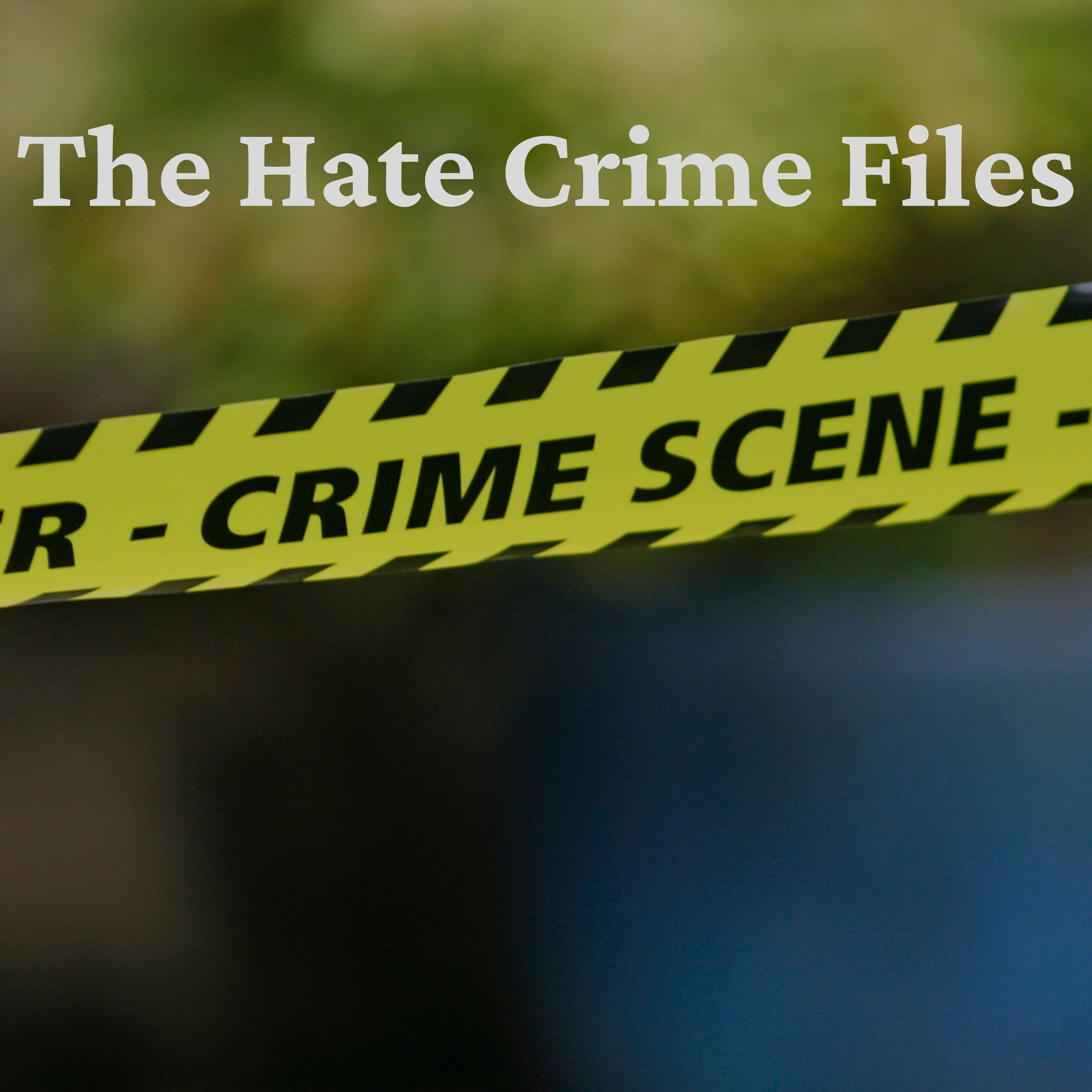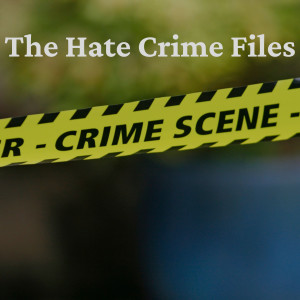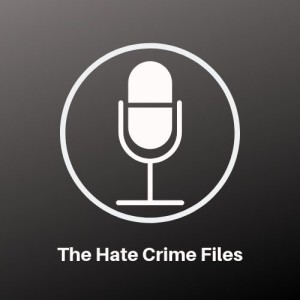
14.1K
Downloads
25
Episodes
A podcast about crimes motivated by prejudice on the basis of race, ethnicity, religion, gender, gender identity, sexual orientation, or other grounds.The Hate Crime Files is researched, written, produced and hosted by Terrance Heath. Terrance Heath is an black, gay writer and activist, living in Maryland with his two sons.
Episodes

Thursday Jan 06, 2022
Episode 23: Ahmaud Arbery, Part 3
Thursday Jan 06, 2022
Thursday Jan 06, 2022
Ahmaud Arbery, an unarmed black man, was chased down, cornered, and killed near Brunswick, GA, by white vigilantes on February 23, 2020, while jogging through a white neighborhood. The men who killed the 25-year-old Arbery claimed they thought he was a burglar after allegedly spotting him looking around a house under construction in the community.
Arbery's murder became national news because one of his alleged murderers, 52-year-old William "Roddie" Bryan, recorded the pursuit and killing on his smartphone. Bryan claimed he merely used his truck to help chase down and corner Arbery. The other defendants — 67-year-old Greg McMichael and his son Travis McMichael, 35 — are seen confronting Arbery in an attempt to perform a "citizen's arrest" in an encounter that ends with Arbery dead after three gunshots.
More than two months would pass before authorities took action.

Friday Jun 05, 2020
Episode 22: Ahmaud Arbery pt. 2
Friday Jun 05, 2020
Friday Jun 05, 2020
Ahmaud Arbery’s life was at a crossroads on February 23, when he laced up his running shoes for his daily run.
Ahmaud probably wasn’t thinking about his past that Sunday afternoon. He had plans for the future. His mother said he intended to go back to South Georgia Technical College and complete his training to become an electrician, like his uncles.
His future stretched out before him, like the familiar roads he jogged along every day, but Ahmaud probably wasn’t thinking about the future. He was likely just thinking about his run and where it would take him that day. It would take him across US Route 17. The four-lane highway that travelers took to the resorts on Jekyll Island also served as a boundary between black and white in the area.
Ahmaud’s route that day took him across the highway and into the predominantly white neighborhood of Satilla Shores

Friday May 22, 2020
Episode 21: Ahmaud Arbery
Friday May 22, 2020
Friday May 22, 2020
It was a sunny Sunday afternoon when 25-year-old Ahmaud Arbery set out from his home in Glynn County, Georgia, just outside of Brunswick, where he lived with his mother in the predominantly black community called Fancy Bluff. Nestled in a marshy coastal corner of Georgia, Glynn County is about 300 miles southeast of Atlanta. With a population of 65,000, it's known for its barrier islands and vibrant African American culture.
Like many southern communities, the county's history is marred by racial violence, including three lynchings in the 19th century. According to census records, the county is about 70 percent white and 27 percent black.
Ahmaud Arbery was ready for a run. A former high school football star, he was passionate about staying in shape, according to family and friends. He spent most of his free time running.
Arbery couldn't have known that it would be his last run; he would be pursued and cornered by father and son Gregory and Travis McMichael and shot dead in the street.

Thursday Apr 30, 2020
Episode 20: The Red Summer of 1919, Jenkins County
Thursday Apr 30, 2020
Thursday Apr 30, 2020
Last year marked the 100th anniversary of a pivotal summer in American history, African American history, and the civil rights movement. It was known as the Red Summer of 1919. Author James Weldon Johnson, who also wrote the lyrics to "Lift Every Voice And Sing," gave it that name because of the blood that stained the streets of so many American cities and towns.
At least 25 riots and incidents of mob violence took place from late spring through the early fall of 1919. White mobs struck black churches as centers of black life and organizing in black communities. More than a dozen churches were burned. As many as 97 lynchings were recorded, and more than 250 African Americans were killed by white mobs as violence erupted in places like New York City; Memphis and Knoxville, Tennessee; Baltimore, Maryland; Norfolk, Virginia; Chicago; and Putnam County, Georgia.

Sunday Mar 22, 2020
Episode 19: Coronavirus Racism
Sunday Mar 22, 2020
Sunday Mar 22, 2020
Unfortunately, the coronavirus pandemic is following the patterns of other outbreaks. Fear and ignorance are spreading nearly as fast as the virus itself. Worse yet, it seems to be trickling down from the highest levels of government.
In a disturbing trend, Asian Americans and Asians in other countries report that they are facing harassment related to the coronavirus pandemic. Some cases involve microaggressions — comments and actions that subtly express prejudice against groups that are discriminated against or subject to stereotypes. Some are violent attacks.

Thursday Mar 05, 2020
Episode 18: Richard Collins III
Thursday Mar 05, 2020
Thursday Mar 05, 2020
Richard Collins III, a 23-year-old African-American student at Maryland's Bowie State University, appeared to be on the threshold of a promising future. He was set to graduate and would have walked across the stage to accept his diploma on Tuesday, May 23.
But Collins would never get to celebrate his graduation.
On May 19, Collins was looking to spend a Friday night out with friends. He sent a text to his ROTC group, asking if anyone was free and interested in going to College Park for a night out. But many of his fellow cadets were out training. So Collins elected to make the trip by himself.
Also out that night was Sean Urbanski, a 22-year-old white male from Severna Park, Maryland.

Wednesday Feb 19, 2020
Episode 17: Tallahassee Hot Yoga Shooting
Wednesday Feb 19, 2020
Wednesday Feb 19, 2020
In 10 days, just before the 2018 midterm elections, Americans saw four terrifying new hate crimes.
On October 24, 51-year-old Gregory Bush tried and failed to break into a black church outside of Louisville. He went to a nearby Kroger, and killed two black shoppers, telling a bystander that "whites don't shoot whites."
Two days later, a 57-year-old Florida man and Trump supporter named Cesar Sayoc was accused of mailing pipe bombs to political critics of Donald Trump.
The following day, 46-year-old Robert Bowers, shot and killed 11 people at a Pittsburgh synagogue, while shouting "All Jews must die!" We covered the Tree of Life synagogue shooting in episode 8 of this podcast.
Finally, on November 2, 40-year-old misogynist Scott Beierle shot and killed two women at a hot yoga class in Tallahassee, Florida, before turning his gun on himself.

Monday Feb 03, 2020
Episode 16: Collier Township Shooting
Monday Feb 03, 2020
Monday Feb 03, 2020
In his 2017 book "Angry White Men: American Masculinity at the End of an Era," sociologist Michael Kimmell coined the term "aggrieved entitlement" to describe the state of mind of some American white men, who become angry to the point of advocating mass murder and genocide. Kimmell argues that white men who join extremist movements are part of the downwardly mobile middle class, who feel "betrayed by the country they love, discarded like trash on the side of the information superhighway."
By all appearances, 48-year-old George Sodini seemed to be a pretty successful guy. He was in good shape and reasonably good looking. He owned a car and had a good job. But, from his perspective and in his own words, Sodini bore more of a resemblance to the men Kimmell described.
On August 4, 2009, that frustration led George Sodini to walk into an aerobics class at an LA Fitness gym in Collier Township, Pennsylvania, and open fire on the people he blamed for his anger: women.

Wednesday Jan 15, 2020
Episode 15: Julio Rivera & Edgar Garzon
Wednesday Jan 15, 2020
Wednesday Jan 15, 2020
Today New York City's Jackson Heights neighborhood is also home to a large, mostly Latino LGBTQ community, which has transformed the area into a destination spot that rivals Chelsea and the Village. It's also become home to LGBTQ families seeking good schools, affordable rents, an easy commute, and a vibrant community in a kid-friendly — and queer-friendly — environment.
Jackson Heights wasn't always as safe or welcoming to LGBT people as it is today. Two hate-motivated murders eleven years apart galvanized the LGBT activists in the neighborhood and sparked actions that made it the welcoming community it is today.

Wednesday Dec 04, 2019
Holiday Break
Wednesday Dec 04, 2019
Wednesday Dec 04, 2019
I wanted to post a quick announcement to let my listeners know that I've decided to take a break from posting new episodes during the holiday season, and will return will all-new episodes in the new year. I've had a great first year doing this podcast, and I'm grateful to all the listeners who subscribed and shared this podcast with friends and family. I'm looking forward to bigger and better things in the new year.
I'll be taking some time during the break to research and prepare new episodes. I'm currently researching what will probably become a series of episodes on the Red Summer of 1919, when more than 20 race riots broke out across the US, following the return of black soldiers from the battlefields of World War I. I'm also researching some gender-motivated hate crimes — that is, motivated by hatred of women — for episodes in the year to come.
Thanks to everyone for making the first year of this podcast succesful. I'll see you in the new year!
